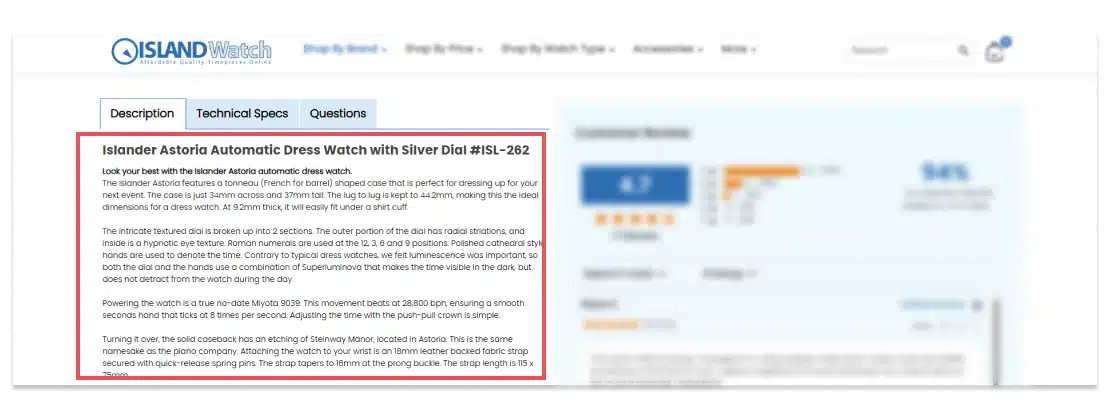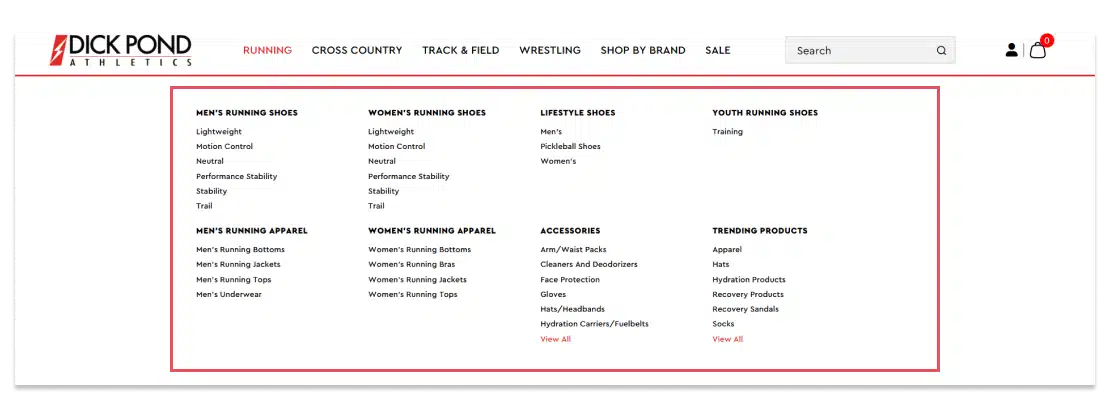
You grab your phone and ask a question out loud. Instead of a list of links, you get a quick, clear answer that sounds like a conversation. That’s AI search in action. Tools like ChatGPT and Google’s generative AI don’t just show results but they understand what you mean and reply like a real person. This change is shifting how people find info and buy online.
For small business owners, this means one thing: if your website isn’t ready for AI search, customers won’t find you. Old SEO tricks like keyword stuffing, vague descriptions, and messy sites don’t work anymore. AI expects clear, detailed product info and simple site designs that are easy to browse. If you don’t adjust, big brands will dominate AI-powered search answers.
This blog explains what AI search optimization means, why it matters for your business, and straightforward steps to get your site ready for this new search world.
What Is AI Search Optimization?
AI search optimization is about making your website easy for smart computer programs to understand. Traditional SEO was about fitting in the right keywords and building links to rank on Google. That still matters, but it’s not enough anymore. Today, AI-powered search tools like Google’s latest updates and ChatGPT don’t just scan for words. They read your content more like a person would, looking at the meaning behind the words and the full context.
When someone asks a question, AI doesn’t just match keywords on your page. It looks for the best answer, written clearly and completely. So instead of “boots for work,” a person might say “What boots are the safest for electricians?” AI tries to understand that whole question and pick the most helpful response. It wants details like “steel toe” or “non-slip” in your product descriptions. The better your site explains the real value of your products or services, the more likely AI is to recommend you.
This kind of search isn’t about tricking the system. It’s about being straightforward and honest. Write like you talk, answer real questions, and make your site easy to explore. That’s AI search optimization.
Why AI Search Optimization Is Critical for Small eCommerce Businesses

People don’t type short keywords into search engines anymore. They ask full questions, sometimes by voice, like they’re talking to a friend. “What’s the best waterproof jacket for hikers?” or “Where can I find affordable steel-toe boots near me?” AI-powered search listens carefully to these questions and looks for clear, specific answers on websites.
For small eCommerce businesses, this shift is a big deal. If your website doesn’t have detailed, easy-to-understand descriptions and info that AI can trust, it won’t show up in answers. Voice assistants like Alexa or Google Assistant pick just one product or store to suggest. They don’t list dozens of options like traditional search engines. That means small brands risk being left out if their sites aren’t easy for AI to read and confident in the details they provide.
Big brands have the budget to keep content updated, customized, and packed with details. Small businesses need to catch up fast or they’ll lose valuable traffic to competitors. Clear, honest product info and a tidy site structure are the best ways to get AI to recognize and recommend your store.
How AI-Powered Search Changes the Rules of the Game
AI-powered eCommerce search forces businesses to rethink how they present products online. It’s no longer enough to slap up a short description and hope for the best. Your product pages need to answer real questions customers ask. That means giving clear, detailed explanations that cover features, uses, and benefits.
Photos matter more than ever. AI looks for authentic, high-quality images that match the product story. Stock or generic pictures won’t cut it. They signal a lack of care or accuracy, which AI penalizes.
Outdated websites with messy navigation or broken links confuse AI. If your site is hard for a person to explore, it’s impossible for AI to understand and rank it well. Local info like correct business hours, addresses, and phone numbers also play a role now. AI wants to suggest nearby stores that customers can trust and visit.
Copied or vague product descriptions fail in AI search. The system looks for originality and specifics that prove you know your products. Clear, honest content helps AI decide you’re the best match for a shopper’s question, pushing your site higher in results.
Simple, No-Tech Ways to Optimize Your Site for AI Search
Write Clear, Friendly Product Descriptions
 Clear Product Description by Long Island Watches
Clear Product Description by Long Island Watches
Write your product descriptions like you’re talking to a friend. Drop the jargon and marketing fluff. Focus on real details customers care about. If you sell work boots, say things like “steel toe,” “water-resistant,” or “extra ankle support.” These details help AI see what makes your products different.
Clear, straightforward descriptions also boost your SEO. Search engines prefer content that’s easy to read and helpful. When you use simple, detailed language, your pages rank better for the right searches. That means more people find you, whether they search the old way or ask AI-powered tools. AI trusts content that answers real questions clearly, so you get picked more often for voice search or AI recommendations. Honest, simple writing builds trust with both people and machines, giving your site a real edge.
Tidy Up Menus and Categories
 Clear Menu Example by Dick Pond Athletics
Clear Menu Example by Dick Pond Athletics
Keep your site’s menus and categories simple so anyone can find what they want fast. Use clear labels and group like items together in a way that makes sense. When your site is easy to navigate, people stick around longer and find products quicker.
AI reads menus and categories to understand what your business offers and how products connect. A messy site confuses AI and hurts your chances of showing up in search results. A clean, logical layout helps AI trust your site and recommend your products. Simple menus aren’t just for customers, they’re key to showing up in AI-powered search.
Use Real, Authentic Photos
Photos matter more than ever. Showing your products in real-life settings builds trust with customers. Imagine selling gardening tools with photos of those tools being used in actual gardens, customers get a clear sense of how they work. This feels honest and relatable. AI notices these authentic images and rewards them by ranking your site higher. Stock photos or plain backgrounds don’t give AI the clues it needs, and they can make your site feel generic or less trustworthy.
Fix Broken Links and Site Errors
Regularly check your website for broken links or pages that won’t load. Visitors get frustrated when things don’t work, and AI takes notice too. Errors make it harder for AI to crawl your site and understand its content. If AI runs into dead ends, it lowers your site’s ranking. A healthy site with working links and fast pages keeps both customers and AI happy, improving your chances of showing up in search results.
Answer Common Customer Questions
Put answers to common questions right on your product pages. Shoppers want to know specifics, like if work boots can handle heavy rain or whether a jacket keeps someone warm in freezing weather. Clear, straightforward answers help AI match your products to exactly what people are asking. When your content directly addresses these concerns, AI picks your site as the best fit. This means more visibility and more sales.
Next Steps: What to Do If You’re Feeling Overwhelmed
If all this sounds overwhelming, you’re not alone. The good news is, mastering AI search optimization doesn’t require a tech team or fancy tools. Start small. Pick a few key products and rewrite their descriptions in your own words. Snap some fresh photos with your phone, even if they’re not perfect. Tidy up your menus and categories so your site is easy to navigate.
Keep an eye on how these changes affect your traffic. It’s a gradual process, but every step counts. If you feel stuck or want faster results, there are professionals who can help you make your site AI-friendly without the headache. You don’t have to do this alone.

 Eashan Mehta
Eashan Mehta





